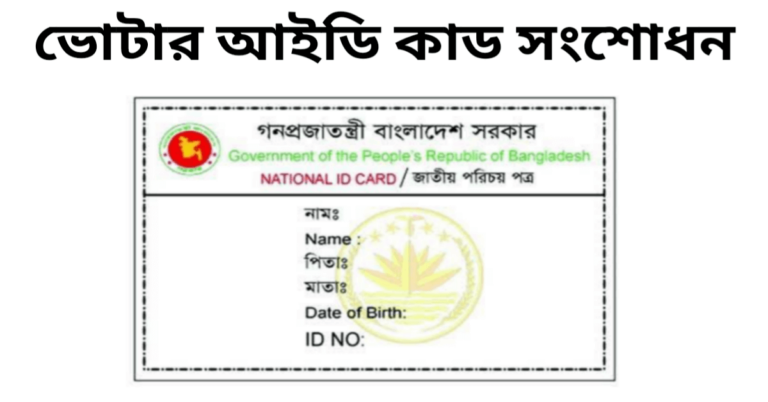When you think about the most widely read and respected Bengali newspaper in Bangladesh, Prothom Alo stands out without question. The name itself, which means “First Light,” symbolizes its aim to inform the nation with clarity, truth, and purpose. Since its beginning in 1998, Prothom Alo has played a major role in shaping public opinion and presenting facts that matter to everyday readers like you.
Unlike many publications that only focus on headlines, Prothom Alo built its reputation by combining journalistic responsibility with national awareness. Whether it’s politics, education, sports, health, or climate issues—this paper brings everything to your fingertips with balance and fairness.
What sets Prothom Alo apart is its clear writing, timely reporting, and the courage to address sensitive issues. It doesn’t rely on clickbait or exaggerated content. Instead, it connects with readers by reporting what truly matters. If you’re a student, teacher, journalist, or simply a curious reader, Prothom Alo provides you with a clear and consistent voice. It’s more than just a news source—it’s a habit for millions, and a reliable part of their daily life.
What Is Prothom Alo?

If you’re looking for a newspaper that reflects the voice of Bangladesh with honesty and clarity, Prothom Alo is a name you already know. First published on 4 November 1998, this Bengali-language daily has grown into one of the most trusted sources of news in the country. The phrase “Prothom Alo” means “First Light,” and just like the first light of day, it aims to bring news that’s fresh, accurate, and relevant.
Owned by Transcom Group and edited by renowned journalist Matiur Rahman, the newspaper is printed and circulated nationwide. It publishes reports on all major national and international affairs—politics, business, sports, entertainment, education, and more. From the start, it has maintained a strong editorial policy that avoids unnecessary bias and places value on verified information. This is one reason why it became popular so quickly.
What also stands out is how it presents stories. Whether it’s about government policies, health care systems, or social changes, the language is clear, and the tone is professional. The paper doesn’t aim to impress with heavy words. Instead, it focuses on facts and readability, which makes it an ideal choice for students, professionals, and families alike.
Prothom Alo also places strong importance on journalistic ethics. In times when misinformation spreads easily, it continues to act as a responsible media outlet. It runs features that are well-researched, interviews that ask real questions, and campaigns that target key social issues like education for girls, drug abuse, and acid violence.
Reach & Readership

When you talk about influence, Prothom Alo holds a position that few newspapers in Bangladesh can match. With a daily print circulation estimated between 425,000 and 500,000 copies, it reaches households, offices, educational institutions, and newsstands across all 64 districts. For many readers, their day begins with a cup of tea and the familiar black-and-red masthead of this trusted paper.
But it’s not just the print edition that makes an impact. The digital version of Prothom Alo has taken its popularity to another level. The website, prothomalo.com, gets millions of visits every month. In fact, it is one of the most visited Bengali news websites in the world. People from Dhaka to New York read the news, view photo stories, and follow breaking headlines online.
This shift to digital hasn’t happened overnight. The newspaper understood early on that people were moving to mobile screens and tablets. That’s why they invested in their website, mobile apps, and social media platforms. The result? Their digital footprint now covers a wide range of audiences—from busy urban workers to Bangladeshi students living abroad.
One survey found that around 57% of newspaper readers in Bangladesh read Prothom Alo regularly. That means out of every ten people who read newspapers, more than five choose this publication. Such numbers are not accidental—they reflect years of trust, timely updates, and consistent reporting.
Editorial Leadership & Influence
One of the strongest pillars of Prothom Alo is its editorial leadership, which has remained consistent, respected, and committed to responsible journalism. At the heart of this leadership is Matiur Rahman, the founding editor, whose vision has guided the paper since its first issue in 1998. Under his direction, the newspaper has not only grown in size but also in reputation, winning national and international recognition for its journalistic standards.
Matiur Rahman is known for his honest and fearless reporting style. He received the prestigious Ramon Magsaysay Award for Journalism in 2005, a recognition often referred to as Asia’s Nobel Prize. His role in shaping Prothom Alo into a bold and trustworthy news outlet has inspired many young journalists in Bangladesh to take journalism seriously and professionally. His team ensures that each article upholds journalistic integrity, respects facts, and avoids unnecessary political or personal bias.
Another key part of the paper’s influence comes from the editorial decisions it makes regarding social issues. It’s not just a newspaper that reports; it acts. The newspaper also maintains a dedicated opinion section where respected thinkers, academics, and columnists share their views.
Perhaps one of the most memorable moments in the paper’s editorial history was the controversy surrounding a cartoon published in its Alpin supplement in 2007. While it led to backlash and protests, the situation showed how Prothom Alo was willing to publish bold content, even at risk.
Frequently Asked Questions (FAQs)
Q1. What is Prothom Alo known for in Bangladesh?
Prothom Alo is widely known for its reliable news reporting, strong editorial leadership, and impactful campaigns on national social issues.
Q2. Who is the chief editor of Prothom Alo?
The chief editor is Matiur Rahman, a respected journalist who has led the paper since its beginning and received international awards for his work.
Q3. How many people read Prothom Alo every day?
The newspaper reaches over 500,000 readers in print and millions more online, making it the most-read Bengali newspaper in Bangladesh.
Q4. Does Prothom Alo have a digital platform?
Yes, Prothom Alo runs a highly active website and mobile apps, along with strong engagement on Facebook, YouTube, and other platforms.
Q5. What kind of content does Prothom Alo publish?
It covers a wide range of topics including politics, education, sports, health, international news, and social campaigns.
Q6. Is Prothom Alo trusted by students and young readers?
Yes, it has special segments like Kishor Alo and education pages that attract a large student and youth audience across the country.
Wrapping Up
If you’re looking for a newspaper that respects facts, speaks clearly, and stays true to its readers, Prothom Alo stands as a perfect choice. It has earned its place not just through wide circulation but through honest, consistent journalism that speaks to all sections of society—from students to professionals, from homemakers to business leaders.
What makes it different is its ability to adapt without losing focus. Whether it’s through print, website, or social media, Prothom Alo has built a strong bridge between traditional values and modern reporting. You don’t just read the news—you understand what’s happening, why it matters, and how it affects everyday life in Bangladesh.
Its editorials are sharp, its reporting is timely, and its reach is unmatched. From Dhaka to remote villages, the name Prothom Alo carries weight and responsibility. And that trust has been built through years of careful editing, ethical standards, and a clear goal: to serve the public interest with dignity and truth.













